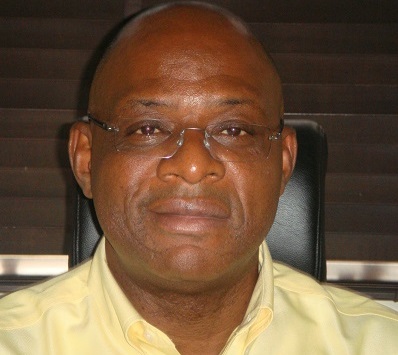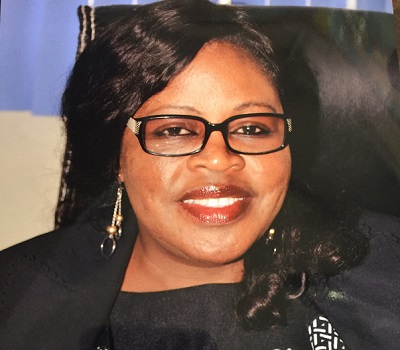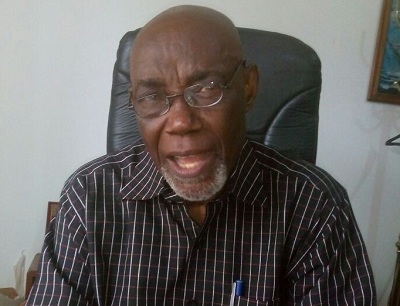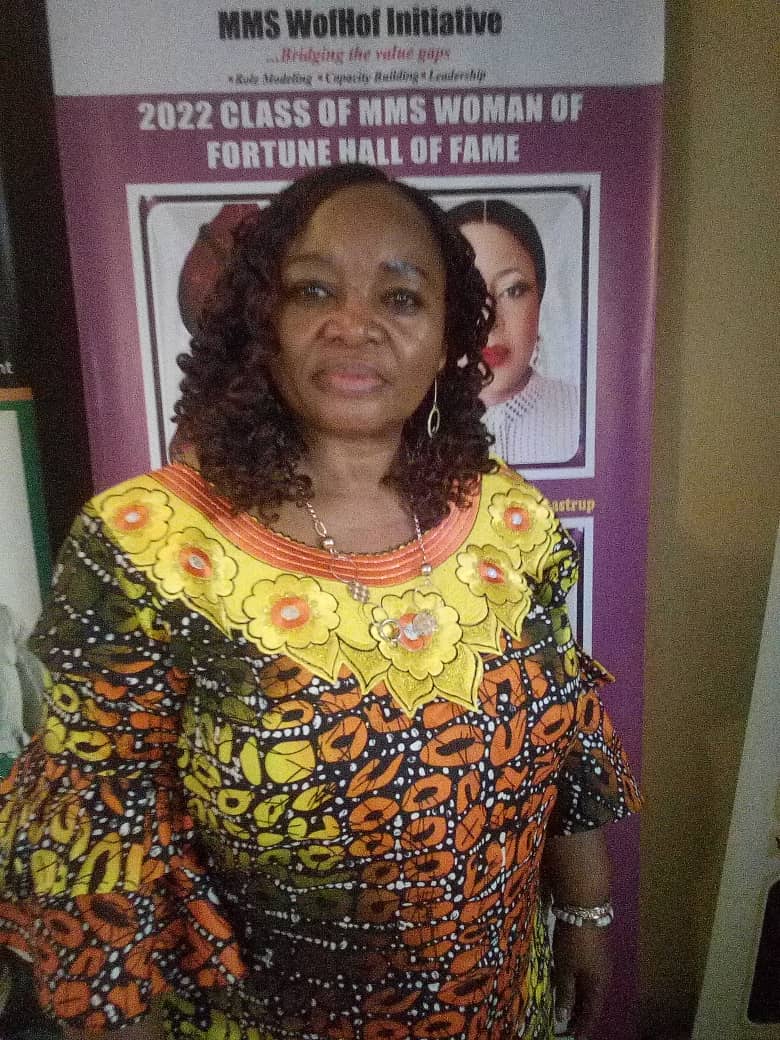Why Nigerian Ship-Owners Haven’t Accessed CVFF – Nwagbara
By Kenneth Jukpor

Barr. Osuala Nwagbara is a veteran Maritime lawyer and chairman of the Planning Committee for the 3rd National Transport Summit by the Chartered Institute of Transport Administration (CIoTA) Nigeria. In this exclusive interview with MMS Plus newspaper, Nwagbara speaks on several pertinent issues in the nation’s shipping sector, ranging from ship acquisition limitations and prospects, foreign dominance despite the Cabotage Act, legal implications of foreign military vessels on Nigerian waters, among others. He also gives insight into the upcoming 3rd CIoTA National Transport Summit. Enjoy it:
The 2021 edition of CIoTA National Transport Summit comes up in few weeks. What does it intend to achieve for the Nigerian transport sector?
Looking at the theme, “Regulating the Transport Sector in Nigeria: The state of the art and the years ahead”, the aim will be to addressing regulation from safety, technical and economic angles across the various modes of transportation. In Nigeria, we have regulators in the aviation sector, railway, maritime, but we don’t have for the road sector yet. Pipeline has been abandoned over the years, but it is being restructured presently and advocacy in that light could help bring it to the fore. At the end of this year’s summit, we would expect more actions on the part of the various regulatory agencies.
In the maritime sector, the regulators are; Nigerian Maritime Administration and Safety Agency (NIMASA), Nigerian Ports Authority (NPA), Nigerian Shippers’ Council (NSC) and National Inland Waterways Authority (NIWA). They are have their specific areas of regulations that they are handling, but we expect that the challenges we have with regards charges for transportation services would receive more attention at the end of the CIoTA 2021 National Summit.
Currently, there is dissatisfaction with the increase that terminal operators and shipping companies have imposed. Recall that the court case with shipping companies and terminal operators vs NSC over arbitrary charges, is still at the Supreme Court. Despite that, there have been continuous introduction of charges in various aspects of their operations. We believe that with the advocacy and emphasis that CIoTA is placing on the pricing of transportation services, NSC would do more to tighten the noose on service providers who would want to be arbitrary.
There are cases in court showing strange charges that are tied to fluctuations in forex in Nigeria. These issues should be addressed via proper regulations.
Over the years, one of the biggest challenges in the nation’s maritime sector has been piracy. While there has been a drop in such maritime crimes and commendations from global bodies like the International Maritime Organization (IMO) and the International Maritime Bureau (IMB). A recent attack was witnessed on the nation’s waters and a Russian Navy tanker had to intervene to address the situation. Is such practice of policing another nation’s maritime domain legal, as carried out by the Russian Navy?
Every ship is under obligation to intervene when there is a distress signal from another ship. Whether it is piracy attack, loss of motive power or any danger on a vessel giving out distress call; intervention of a ship either foreign or local is regulated internationally. This practice is encouraged and that’s why we have the regulation that every sea-going ship must have the Global Maritime Distress and Safety System (GMDSS).
GMDSS is a system installed on ships to help it send signals that it needs assistance when in distress. The danger that a vessel could be facing may not only be a result of piracy, but it is welcomed if any other vessel could intervene. It is also seen as Corporate Social Responsibility (CSR) for one vessel to be able to assist another irrespective of the nationality or location.
Meanwhile, we should applaud NIMASA for successfully launching the Deep Blue Project. We expect that with the security architecture and the Suppression of Piracy and Other Maritime Offences (SPOMO) Act, Nigerian waters would continue to be safe and eventually lead to the reduction in charges such as the war risk charge.
The convictions that have been meted out with the SPOMO Act within the short period that it has been in place, is also a good signal for the nation as the international community can see that Nigerian waters are relatively safe. It also shows that the courts have realized that they have a role to play in ensuring that pirates and other offenders found guilty are prosecuted.
Despite the availability of the Cabotage Act, ship owners still lament that their assets aren’t prioritized as foreigners dominate shipping business, especially coastal trade. Why do foreign ships continue getting waivers to operate in Nigeria at the expense of indigenous operators?
The hullabaloo shouldn’t be about granting waivers to foreign ships. If Nigerian ship owners can acquire the right size of vessels that meet best standards and are in class, they would definitely get the contracts. Foreign ship owners wouldn’t have a place in Nigeria if indigenous operators can come forward with state-of-the-art vessels.
I don’t see why Nigerian-owned vessels that are insured and meet all the necessary requirements would be deprived businesses by the Nigerian National Petroleum Corporation (NNPC) and other people involved in cargo movement in the country. Most of the vessels on Nigerian waters including those of foreigners are used by the owners, they are usually hired and those who hire them also make their profit from the business. So, the upsurge of indigenous ship owners would also mean cheaper prices because there wouldn’t be need for third party operations and additional costs.
To achieve this, there is a need to address the scarcity of indigenous vessels. That’s where the emphasis should be and not the waivers granted to foreigners. The advocacy should be that more Nigerians acquire ships and we have to address the issues limiting Nigerians should as fiscal policies as the proposed removal of import duties on ships and the spare parts. If Nigerian-owned vessels aren’t available and we refuse to use foreign ones, there would be no vessels to utilize for coastal services especially in the oil and gas sector.
Since we don’t have enough capital in the country, I would suggest that Nigerians come together to acquire vessels. Where you have two to five credible Nigerians it would be easier to get foreign loans at single digit interest to float a shipping company and buy a vessel. This approach would be easier than for a single individual to acquire a vessel. The truth is that Nigerian banks are willing to give loans to ship owners to acquire vessels, if they do agree to give loans it wouldn’t be on single digit interest rate which is obtainable abroad. The best you could get from a Nigerian bank would be loan at 20 percent per annum.
In some foreign nations, ship owners get moratorium of about two to three years before they start paying back the loans. There are also other fiscal incentives, but no Nigerian bank would give out single digit interest loans and they wouldn’t also consider any moratorium. These are the challenges that Nigerian ship owners have and the consequence is having Nigerian vessels that are substandard. Let’s not forget that petroleum is black gold, we have seen cases where the quantity of products discharged from a vessel is much less than what was pumped in because of the substandard or faulty vessels.
There is also the issue of ship management because a lot of Nigerians have acquired vessels but they haven’t been able to get Return on Investment (RoI). Managing a ship is even more challenging than buying a ship. Some of the ships in Nigeria can’t get a job because they aren’t properly managed. Maintenance of vessels is very important and it’s not necessarily the age of the vessel. However, we have also found that most of the vessels that get NNPC contract, the oil company demand that the ships are not older than 15 years. Meanwhile, most of the Nigerian-owned ships were built in the 1980s or earlier.
Cabotage Vessel Financing Fund (CVFF) is a platform to address fiscal challenges with ship acquisition, but no one has benefitted. In fact, some experts have asserted that the multiplicity of ship owners associations has been the problem. What’s your take on this?
In my assessment, I would say that such claim about associations isn’t correct. This is because the Cabotage Act in Section 42 to 46 never talked about associations. It talked about Nigerians and indigenous companies being entitled to disbursement of the fund. What Nigerians haven’t been able to do is to come together. I wouldn’t support that an individual be given CVFF to buy a ship, I would rather support a consortium of Nigerians or indigenous shipping companies come together to access the fund. This will make for corporate governance, because when an individual is running a company, he sees it as his private business where he decides unilaterally how to manage the funds generated by the ship and when to pay back. After signing a contract, he could come back to say “I’ll pay back, but due to some exigencies. I’ll pay at a later time.” Such practice would lead us to the challenges we had with the Ship Acquisition and Ship Building Fund. If three to five credible Nigerian ship-owners approach NIMASA for funds to acquire a vessel with CVFF, it makes a better case than individuals and the agency as well as the Transportation Ministry would be more willing to fast track such process.
The Governing Council election of the IMO comes up in the next few weeks and Nigeria is contesting again for a place in the Category C. How would you rate Nigeria’s preparedness and chances at the polls?
Like every other political campaign which the IMO Council election represents, Nigeria should seek friendship with other nations that have a vote at IMO as the nation vies for a seat on Category C at the polls.
The implementation of SPOMO Act and the number of convictions recorded within the last two years, the Deep Blue Project that the country has embarked upon and the effects already witnessed in the Gulf of Guinea and the role of Nigeria in the Maritime Organizations of West and Central Africa (MOWCA); Nigeria could be successful this time around. There has to be a lot of lobbying to get other nations that have a vote, but that lobbying should be on the strength of what has been done in the sector.








